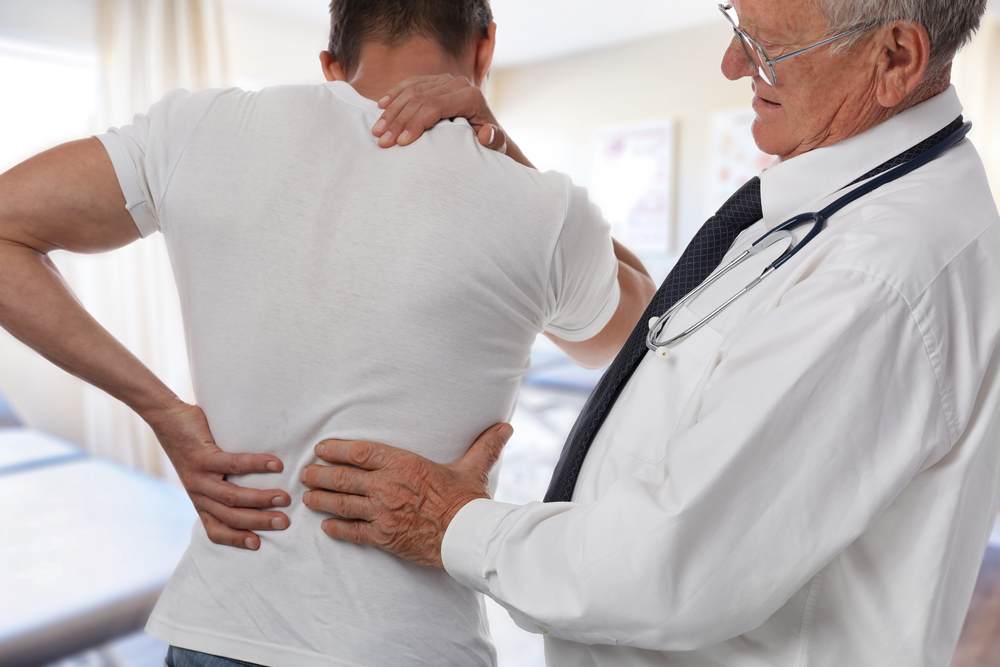 A sudden fall may not seem like a big deal at first, but it can have lasting repercussions that can extend far beyond the initial impact. The human spine, a complex structure of bones, nerves, and discs, is particularly vulnerable to the forces generated during a fall. A back injury from a fall can range from mild strains to severe fractures, causing pain, limited mobility, and potential long-term complications. Understanding the mechanics of how a fall can lead to back injuries is crucial in appreciating the importance of preventive measures and prompt medical attention to treat the potential consequences of these unforeseen accidents.
A sudden fall may not seem like a big deal at first, but it can have lasting repercussions that can extend far beyond the initial impact. The human spine, a complex structure of bones, nerves, and discs, is particularly vulnerable to the forces generated during a fall. A back injury from a fall can range from mild strains to severe fractures, causing pain, limited mobility, and potential long-term complications. Understanding the mechanics of how a fall can lead to back injuries is crucial in appreciating the importance of preventive measures and prompt medical attention to treat the potential consequences of these unforeseen accidents.
Pay Attention to These Symptoms of a Back Injury from a Fall
Whether you slipped on a rug in your home or tripped over an object at work, a slip and fall injury should always be taken seriously. Even if you land on your buttocks or your hands and knees, the unexpected fall can also cause symptoms in other areas of the body, including your back and spine. Here are some symptoms to pay attention to for a potential back injury from a fall:
- Pain: Persistent or severe pain in your back or neck
- Stiffness: Difficulty moving your back or neck due to stiffness
- Bruising or Swelling: Visible signs of injury, such as bruising or swelling
- Numbness or Tingling: Numbness or tingling in your back, arms, or legs
- Weakness: Loss of strength or weakness in your muscles
- Limited Range of Motion: Difficulty moving your back or neck through the typical range of motion
- Radiating Pain: Pain that travels down the legs or arms
Delayed Symptoms of a Back Injury
Some back injury symptoms might not show up for hours or even days after a fall. Here are some examples of delayed symptoms of a back injury from a fall:
- Chronic Pain: Pain that develops gradually and persists over time
- Headaches: In some cases, a back injury might lead to tension headaches
- Muscle Spasms: Spasms in the muscles around the injured area may occur later
- Fatigue: Increased fatigue or exhaustion, especially if the body is compensating for the injury
- Sleep Disturbances: Difficulty sleeping due to discomfort or pain
3 Common Back Injuries from a Fall
Not all back injuries are alike, and each can come with its own set of symptoms and complications. The impact of the fall and how you landed will also play a role in the type of injury you might experience. Here are three common back injuries from a fall.
Back Strain
A strained back is one of the most common types of back injuries from a fall. A back strain involves the overstretching or tearing of the muscles or tendons that support your back and spine. Falling or twisting your back can strain the soft tissues in the back and result in pain, muscle spasms, and stiffness in the area.
Herniated Disc
A herniated disc is an injury to one of the spinal discs that separates vertebrae. Each spinal disc is made up of a tough outer shell that encases a gel-like center. A sudden fall can lead to a tear of the outer layer that results in the inner disc material to protrude. When this happens, nearby nerves can become aggravated, leading to sharp pain, tingling, and numbness that may extend into the arms or legs.
Compression Fracture
A compression fracture is a type of broken bone that affects one of the vertebrae in your spine. Falling from a significant height or with a forceful impact can put excessive pressure on the spine. When this happens, the vertebrae can become compressed and potentially fracture. The most common area for a compression fracture is in the mid to lower part of the spine. Symptoms of a compression fracture include intense pain in the area and reduced mobility.
What to Do After a Back Injury from a Fall
 Once you get over the initial shock or embarrassment of a sudden fall, it is important to pause and assess yourself for injuries. Before you start moving around, you want to run through a quick checklist in your head from head to toe and pay attention to where you might notice any obvious pain or discomfort. If you feel okay moving around, try to sit up slowly and get your balance before attempting to stand. You may want to further assess for injuries, like looking for any cuts, scrapes, or bruising. If you bumped your head during the fall, take note of any potential symptoms you may have a head injury, like a concussion.
Once you get over the initial shock or embarrassment of a sudden fall, it is important to pause and assess yourself for injuries. Before you start moving around, you want to run through a quick checklist in your head from head to toe and pay attention to where you might notice any obvious pain or discomfort. If you feel okay moving around, try to sit up slowly and get your balance before attempting to stand. You may want to further assess for injuries, like looking for any cuts, scrapes, or bruising. If you bumped your head during the fall, take note of any potential symptoms you may have a head injury, like a concussion.
Back Injury Treatment
If you experience sudden back pain that doesn’t go away, you may want to visit a spine specialist or urgent care near you to get checked out. Whether you see an orthopedic doctor, chiropractor, or other spine specialist, they may recommend imaging tests such as X-rays or CT scans to get a more detailed look at the injured area. A prompt review of your symptoms will allow a doctor to assess the severity of an injury and recommend the appropriate treatment for you. Treatment for a back injury from a fall will depend on your specific diagnosis and may include a combination of pain management, rest, and physical therapy.
Recovery & Rehabilitation
The time it takes to recover from a back injury after a fall can vary depending on the type and severity of your injury. However, the most effective way to recover is to follow your doctor’s medical advice and commit to your rehabilitation plan. Rest is a crucial aspect of your recovery, along with gradually reintroducing activities that will not exacerbate your injury. Stretches and exercises can help you regain strength, improve your flexibility, and promote healing.
Visit AICA Marietta
Visit a Marietta chiropractor at AICA Orthopedics for a thorough assessment and personalized treatment plan after a fall. Experience the convenience of working with a team of spine specialists and access to diagnostic imaging tools all in one place.